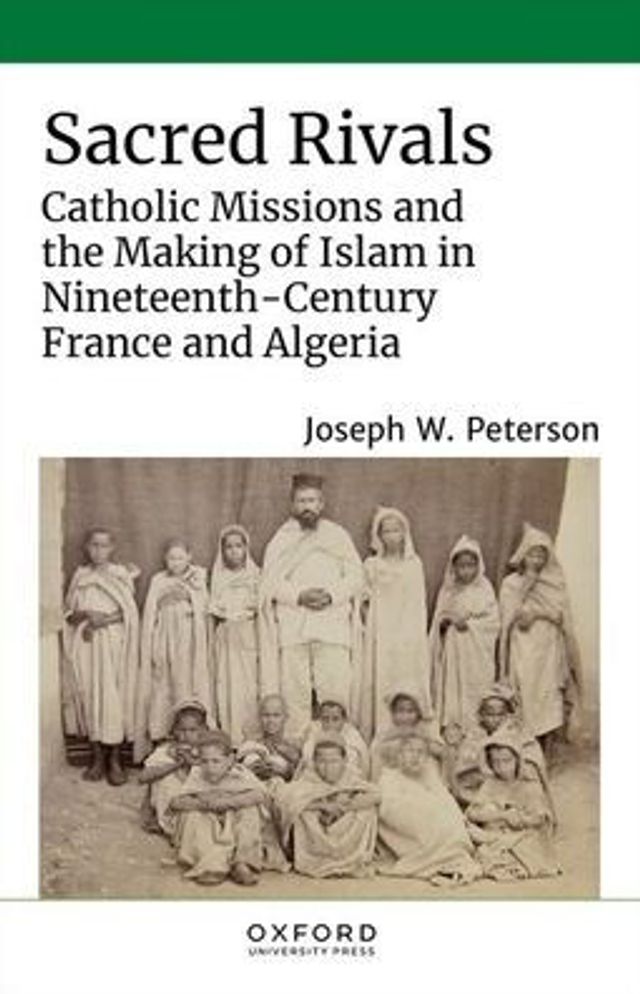Home
Sacred Rivals: Catholic Missions and the Making of Islam Nineteenth-Century France Algeria
Loading Inventory...
Barnes and Noble
Sacred Rivals: Catholic Missions and the Making of Islam Nineteenth-Century France Algeria
Current price: $69.00


Barnes and Noble
Sacred Rivals: Catholic Missions and the Making of Islam Nineteenth-Century France Algeria
Current price: $69.00
Loading Inventory...
Size: Hardcover
*Product Information may vary - to confirm product availability, pricing, and additional information please contact Barnes and Noble
In 1839, the Abbé Jacques Suchet was sent to the Algerian city of Constantine, recently conquered by French forces, to minister to the new French colonial population there. He commented favorably on the Arabs' Muslim religiosity, perhaps seeing them as fertile ground for missionary work. In the mid-1870s, when the Abbé Edmond Lambert toured another colonial Algerian city, he recorded that Arabs were inherently "liars, thieves, lazy in body and spirit" and that even their seeming piety was insincere. In the space of less than forty years, some French Catholics went from viewing Muslims in Algeria as fellow religious devotees, potential converts, and allies against French secularism to viewing them as enemies of civilization.
Sacred Rivals
focuses on French Catholic ideas about Islam and Arab-ness-"Catholic orientalism"-in the context of religious culture wars in France and of missionary work in colonial Algeria. It examines the way the stereotype of "Islam" was used and abused in religious and political debates in French society, as well as actual missionary encounters with Muslims in Algeria, where missionaries and their potential converts came into intimate, daily contact. It reveals that, counter-intuitively, it was sometimes the most conservative Catholics who spoke most sympathetically of Muslim religiosity. "Liberal," mainstream Catholics were often quicker to denigrate Islam as backward, fanatical, and dangerously theocratic. As Catholics increasingly came to identify with France's more secular "civilizing mission," any admiration for Islam would be eclipsed by a more racialized, colonialist view of Islam. Disillusioned with the possibility of Muslim conversion and seeking an explanation for their failure, even missionaries in Algeria joined in with racially-coded attacks on "Arab" Islam.
Through stories of personal encounters,
exposes the ways in which religious prejudices against Muslims transformed into racial ones, as well as the ways in which Algerian Muslims adapted, used, and resisted French culture and imperialism.
Sacred Rivals
focuses on French Catholic ideas about Islam and Arab-ness-"Catholic orientalism"-in the context of religious culture wars in France and of missionary work in colonial Algeria. It examines the way the stereotype of "Islam" was used and abused in religious and political debates in French society, as well as actual missionary encounters with Muslims in Algeria, where missionaries and their potential converts came into intimate, daily contact. It reveals that, counter-intuitively, it was sometimes the most conservative Catholics who spoke most sympathetically of Muslim religiosity. "Liberal," mainstream Catholics were often quicker to denigrate Islam as backward, fanatical, and dangerously theocratic. As Catholics increasingly came to identify with France's more secular "civilizing mission," any admiration for Islam would be eclipsed by a more racialized, colonialist view of Islam. Disillusioned with the possibility of Muslim conversion and seeking an explanation for their failure, even missionaries in Algeria joined in with racially-coded attacks on "Arab" Islam.
Through stories of personal encounters,
exposes the ways in which religious prejudices against Muslims transformed into racial ones, as well as the ways in which Algerian Muslims adapted, used, and resisted French culture and imperialism.


















